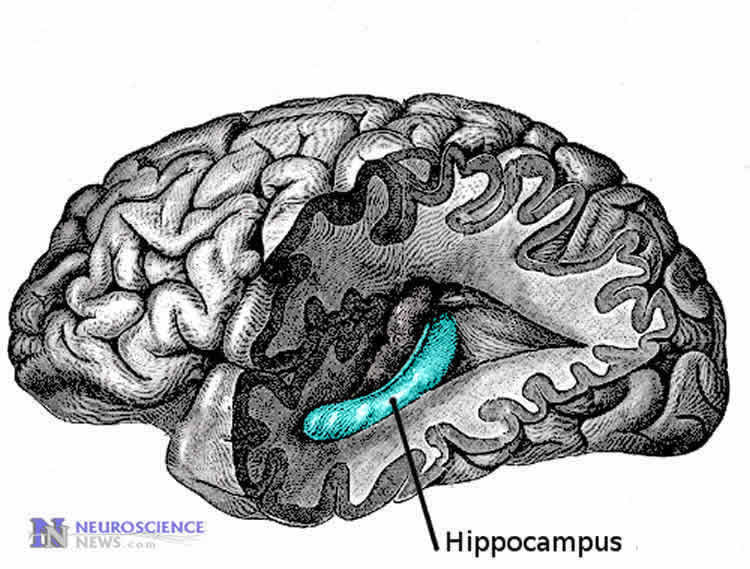Summary: Researchers describe the biological mechanism that drives flashbulb memories.
Source: University of Edinburgh.
Most people remember where they were when the twin towers collapsed in New York … new research reveals why that may be the case.
A study led by the University of Edinburgh has shed new light on the biological mechanisms that drive the process, known as flashbulb memory.
The research involving mice reveals how attention-grabbing experiences activate a specific area of the brain, which then releases memory-boosting chemicals.
The findings help to explain why people retain information better if something distracts their attention either just before or just after a memory is stored in their brain.
Experts say the research could bring fresh insights to support learning in the classroom.
The study focused on how everyday memories – such as remembering names or items on a shopping list – are stored in the brain. In mice, one equivalent is remembering the location of a food source.
Researchers placed mice in an arena to search for hidden food that changed location each day.
They found animals that had a new experience within 30 minutes of being trained to remember the food location – such as exploring an unfamiliar floor surface – were better at remembering where to find food the next day.
The phenomenon is linked to release of a chemical called dopamine from an area of the brain known as the locus coeruleus, the team showed. This area of the brain is particularly sensitive to new experiences, they found.
They showed that brain cells in the locus coeruleus carry dopamine to another area of the brain called the hippocampus, which controls the formation of memories.

Dopamine is well known for its role in memory formation. Much research has focused on the source of dopamine and what triggers its release in the brain.
This is the first study to establish a link between the locus coeruleus and the hippocampus.
The study, led by the University of Edinburgh, also involved scientists at the University of Texas Southwestern. It is published today in the journal Nature.
Professor Richard Morris, of the Centre for Cognitive and Neural Systems at the University of Edinburgh, said: “Little surprises happen all the time in subtle ways that reflect our personal lives and interests. Somehow, the novelty of surprise creates a halo of better memory for all the otherwise trivial events of one’s day that we ordinarily forget.
“Our research suggests that a skillful teacher may be able to take advantage of these little surprises to help pupils learn and remember.”
Source: Jen Middleton – University of Edinburgh
Image Source: This NeuroscienceNews.com image is credited to Neil Hammerschlag, Ph.D. Graphics: University of Edinburgh Miller School of Medicine.
Original Research: Abstract for “Locus coeruleus and dopaminergic consolidation of everyday memory” by Tomonori Takeuchi, Adrian J. Duszkiewicz, Alex Sonneborn, Patrick A. Spooner, Miwako Yamasaki, Masahiko Watanabe, Caroline C. Smith, Guillén Fernández, Karl Deisseroth, Robert W. Greene and Richard G. M. Morris in Nature. Published online September 7 2016 doi:10.1038/nature19325
[cbtabs][cbtab title=”MLA”]University of Edinburgh. “How New Experiences Boost Memory Formation.” NeuroscienceNews. NeuroscienceNews, 8 September 2016.
<https://neurosciencenews.com/experience-memory-neuroscience-4991/>.[/cbtab][cbtab title=”APA”]University of Edinburgh. (2016, September 8). How New Experiences Boost Memory Formation. NeuroscienceNews. Retrieved September 8, 2016 from https://neurosciencenews.com/experience-memory-neuroscience-4991/[/cbtab][cbtab title=”Chicago”]University of Edinburgh. “How New Experiences Boost Memory Formation.” https://neurosciencenews.com/experience-memory-neuroscience-4991/ (accessed September 8, 2016).[/cbtab][/cbtabs]
Abstract
Locus coeruleus and dopaminergic consolidation of everyday memory
The retention of episodic-like memory is enhanced, in humans and animals, when something novel happens shortly before or after encoding. Using an everyday memory task in mice, we sought the neurons mediating this dopamine-dependent novelty effect, previously thought to originate exclusively from the tyrosine-hydroxylase-expressing (TH+) neurons in the ventral tegmental area. Here we report that neuronal firing in the locus coeruleus is especially sensitive to environmental novelty, locus coeruleus TH+ neurons project more profusely than ventral tegmental area TH+ neurons to the hippocampus, optogenetic activation of locus coeruleus TH+ neurons mimics the novelty effect, and this novelty-associated memory enhancement is unaffected by ventral tegmental area inactivation. Surprisingly, two effects of locus coeruleus TH+ photoactivation are sensitive to hippocampal D1/D5 receptor blockade and resistant to adrenoceptor blockade: memory enhancement and long-lasting potentiation of synaptic transmission in CA1 ex vivo. Thus, locus coeruleus TH+ neurons can mediate post-encoding memory enhancement in a manner consistent with possible co-release of dopamine in the hippocampus.
“Locus coeruleus and dopaminergic consolidation of everyday memory” by Tomonori Takeuchi, Adrian J. Duszkiewicz, Alex Sonneborn, Patrick A. Spooner, Miwako Yamasaki, Masahiko Watanabe, Caroline C. Smith, Guillén Fernández, Karl Deisseroth, Robert W. Greene and Richard G. M. Morris in Nature. Published online September 7 2016 doi:10.1038/nature19325






